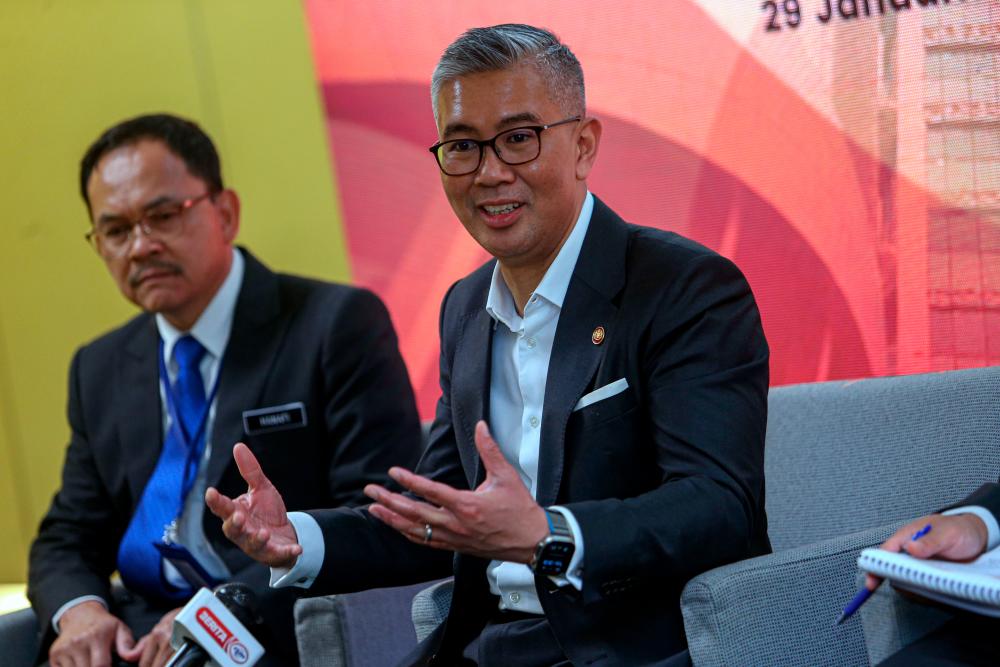KUALA LUMPUR: The Ministry of Investment, Trade and Industry (Miti) is coordinating with the Ministry of Human Resources and the Ministry of Higher Education to address the issue of skilled labour shortage in the country, particularly in the manufacturing sector.
Saying that the new Cabinet line-up is a “good team”, Investment, Trade and Industry Minister Tengku Datuk Seri Zafrul Abdul Aziz said both ministries have agreed to set up a committee to address the issue.
“We have also engaged with the National Technical and Vocational Education and Training (TVET) Council for different levels of skills. We have also discussed with the industry how they should get involved in discussions at an early stage,“ he told reporters after chairing Miti Dialogue 2024 yesterday.
The minister said there is a skilled talent gap, particularly in the electrical and electronic (E&E) sector, stating that “50,000 engineers are needed annually, but Malaysian universities only produce 5,000 graduates in this field each year”.
In a separate statement, the ministry said Miti Dialogue 2024 held yesterday concluded with a resolve on disciplined execution, as well as stronger public-private collaboration to ensure Malaysia’s reindustrialisation agenda – as outlined by the New Industrial Master Plan 2030 (NIMP2030) – remains on track.
It stated that the NIMP2030, launched by Prime Minister Datuk Seri Anwar Ibrahim on Sept 1, 2023, serves as the cornerstone for Malaysia’s reindustrialisation.
Miti said it looks forward to facilitating this shared responsibility by strengthening the collaboration and partnership with key three stakeholders to drive reindustrialisation for Malaysia’s second economic take-off in this whole-of-nation spirit.
Almost 300 people from 24 ministries and Miti’s agencies, including representatives from 103 associations, chambers of commerce and business councils attended the dialogue.
In his closing remarks, Tengku Zafrul highlighted several issues, such as gearing up SMEs on ESG disclosures via the National Industry ESG Framework (i-ESG); addressing the skilled talent gap in the manufacturing industry: attracting the right foreign direct investments; and getting industry to embrace new technology as quickly as possible.
He said, “A policy is only as good as its implementation. Proper execution of NIMP is increasingly pertinent for Malaysia to continue enhancing its national business and investment landscape competitiveness. In putting our resources where our mouth is, Miti last year announced its Quarterly Report Card Day, where we will share progress of the various policies under Miti’s purview. We are currently developing a dashboard for both the NIMP and other key metrics from specific policies, to make it easier for industry members and the public to track our progress. As we track projects, we must also be bold enough to review targets, if necessary, so that we can correct our course occasionally.”









